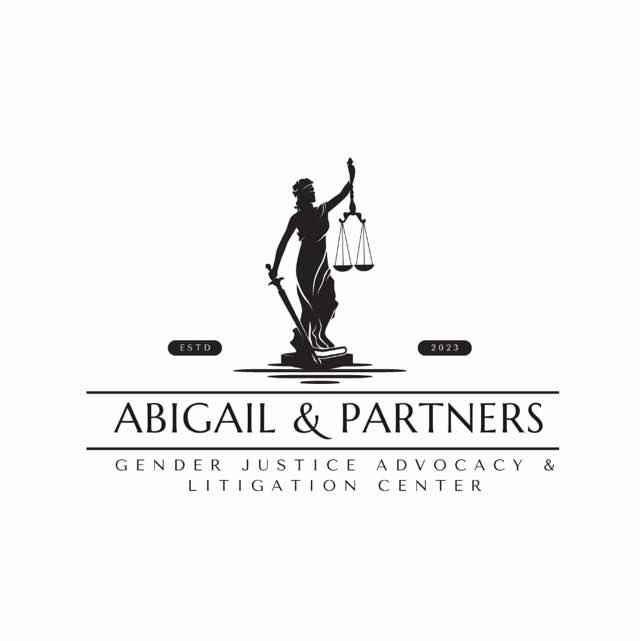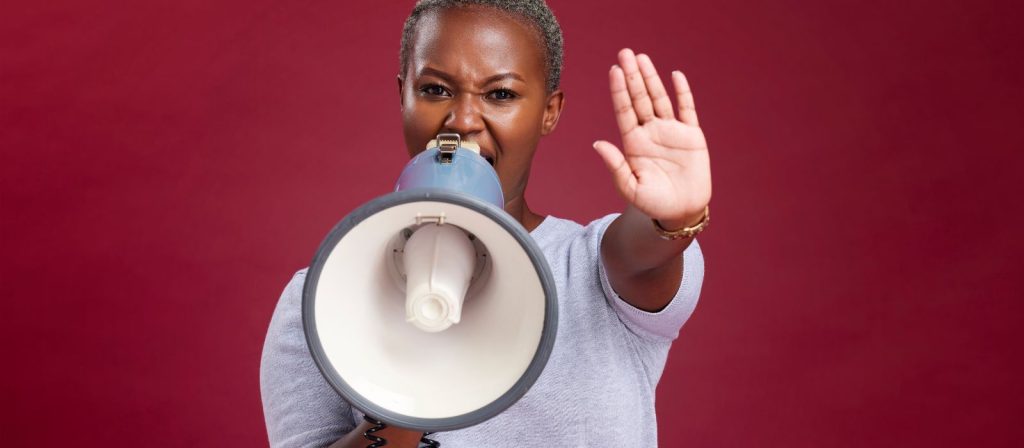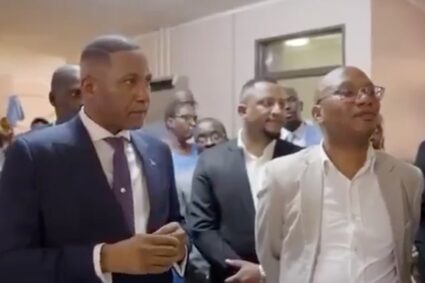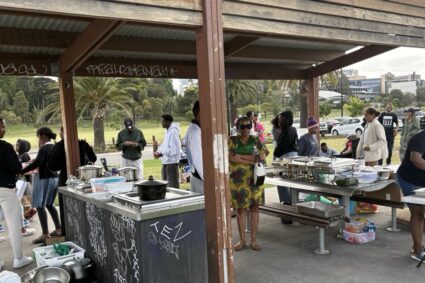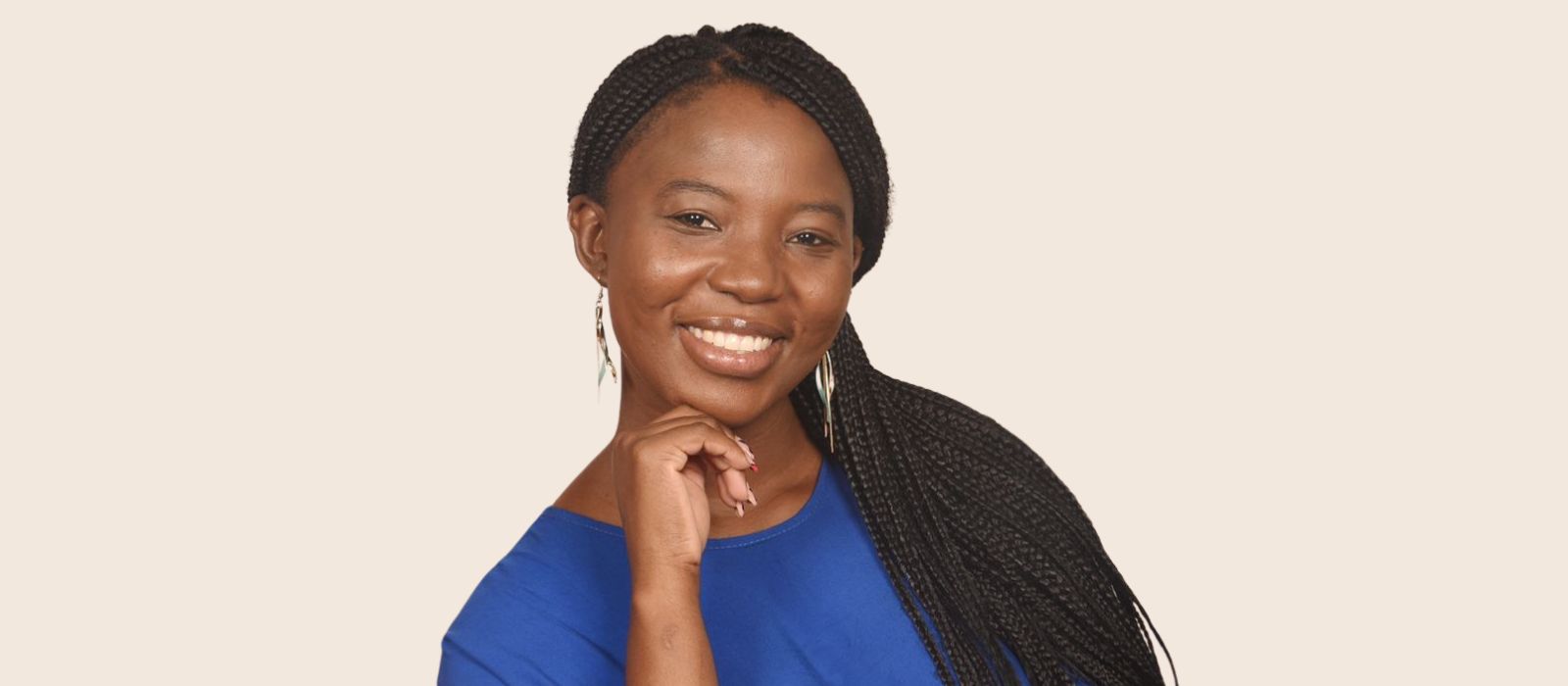
In a world where access to justice remains limited for many, especially women affected by gender-based violence (GBV), legal advocates like Abigail Nthuba are stepping up to make a difference. Abigail, a dedicated lawyer, researcher, and founder of the law firm Abigail and Partners in Botswana, has committed her career to supporting survivors of GBV and advancing gender equality.
Her journey from an advocate to an influential leader in the fight against GBV is both inspiring and transformative. In this exclusive interview with My Afrika Magazine (MM), Abigail (AN) shares her motivations, challenges, and hopes for a more just society.
MM: It’s a pleasure to tell your story, Abigail. Could you introduce yourself to our readers?
AN: Thank you for having me. My name is Abigail Nthuba. I’m a legal advocate, researcher, and founder of Abigail and Partners, a law firm based in Botswana that focuses on providing strategic litigation and legal services on a pro bono basis, especially for women impacted by GBV. I am also a Leadership and Advocacy for Women in Africa fellow at Georgetown University (2022-23) and hold a Master’s in International Business and Economic Law from Georgetown. My work is deeply driven by a passion for justice, gender equality, and human rights.
MM: What inspired you to establish Abigail and Partners, and what initially sparked your focus on gender-based violence in Botswana?
AN: The inspiration for Abigail and Partners stemmed from witnessing the pervasive impact of GBV in my community and recognizing the lack of accessible legal support for survivors. Many women in Botswana face enormous barriers in seeking justice due to financial limitations and societal stigma. I founded the firm to bridge this gap, offering free legal services to those in need and advocating for systemic change. My focus on GBV was sparked by personal encounters with survivors and a strong commitment to challenge the norms that allow violence and discrimination against women to persist.
MM: Could you share some key challenges you’ve encountered in providing free legal services to women affected by GBV? How have these challenges influenced your approach to strategic litigation?
AN: A major challenge has been the shortage of resources—both financial and human—to handle the volume of cases we receive. Another significant obstacle is the entrenched cultural attitudes that discourage women from coming forward. These challenges have underscored the need for a holistic approach to strategic litigation, one that goes beyond courtroom representation to include community education, advocacy, and policy reform. This approach allows us to address not only individual cases but also the root causes of GBV.
MM: With your firm advocating for women’s rights, what types of cases do you find most pressing in the fight against GBV, and how does Abigail and Partners help bridge these justice gaps?
AN: The most pressing cases often involve domestic violence, sexual assault, and property inheritance disputes, where women are deprived of their rightful assets due to patriarchal customs. At Abigail and Partners, we bridge these justice gaps by providing legal representation, connecting clients with counseling and support services through partner organizations, and conducting public awareness campaigns to encourage women to seek help. We work closely with other organizations to ensure a coordinated response to GBV.
MM: Your research covers topics from property inheritance to the impact of GBV on public health. Could you share insights on how these issues intersect, particularly in Botswana?
AN: In Botswana, property inheritance and GBV are deeply interwoven, reflecting systemic issues of gender inequality. Many women face discrimination in inheritance rights due to customary laws favoring male heirs, leaving them economically vulnerable and often unable to escape abusive relationships. This intersection is apparent in cases where widows and daughters are denied inheritance, heightening their susceptibility to further abuse. Additionally, GBV has significant public health implications, leading to chronic health issues like mental health disorders and reproductive complications. Addressing these intersecting issues requires legal reforms, robust law enforcement, and support systems for survivors, including healthcare, legal aid, and psychosocial services. Engaging traditional leaders and community influencers is also key to shifting cultural norms around gender and inheritance rights.
MM: What has been the impact of your community collaborations, such as with the Botswana Gender-Based Violence Prevention and Support Center? How have these partnerships contributed to changing perceptions around GBV?
AN: Collaborating with organizations like the Botswana Gender-Based Violence Prevention and Support Center has been instrumental in amplifying our impact. Through these partnerships, we offer comprehensive support to survivors, including legal assistance, counseling, and safe spaces. Joint advocacy and education campaigns have gradually shifted community attitudes, with more people acknowledging GBV as a serious issue and supporting efforts to combat it.
MM: You’ve initiated numerous programs involving men and boys. Could you tell us about your approach to engaging men in the conversation around GBV and any changes you’ve witnessed?
AN: Engaging men and boys is crucial in addressing the root causes of GBV. Our approach involves creating safe spaces for open dialogue, where men can discuss and challenge harmful gender norms. We work with male role models and former perpetrators who share their stories and advocate for change. These programs have increased awareness among men and fostered a willingness to stand against GBV. We’ve seen positive changes, like men intervening to prevent violence and actively supporting women’s rights in their communities.
MM: As an alumna of Georgetown University and a Leadership and Advocacy for Women in Africa fellow, how have these experiences influenced your work?
AN: My time at Georgetown and my fellowship have been transformative. They provided me with advanced knowledge, skills, and a global perspective on law, gender, and human rights. These experiences have helped me develop effective advocacy strategies, engage in impactful community work, and build networks with other changemakers. They’ve reinforced my commitment to using my education to drive positive change in Botswana.
MM: What policy changes do you believe are most urgently needed in Botswana to better support GBV survivors, and what role do you see your firm playing in shaping these reforms?
AN: Botswana urgently needs comprehensive GBV laws that offer clear protections for survivors and strict penalties for perpetrators. Improved access to legal, medical, and psychological support services is also essential. My firm plays a vital role in advocating for these reforms through research, policy advocacy, and collaboration with lawmakers and other stakeholders. By raising public awareness and highlighting the importance of addressing GBV, we hope to influence positive policy changes that protect and support survivors.
Abigail Nthuba’s unwavering dedication to justice and gender equality is shaping a brighter future for women in Botswana. Her work with Abigail and Partners is more than legal representation; it’s a call for systemic change, rooted in a vision of a just society where women can live free from violence and discrimination. Through her advocacy, research, and community engagement, Abigail is breaking barriers, creating safe spaces, and inspiring a new generation of leaders in the fight for gender justice.
